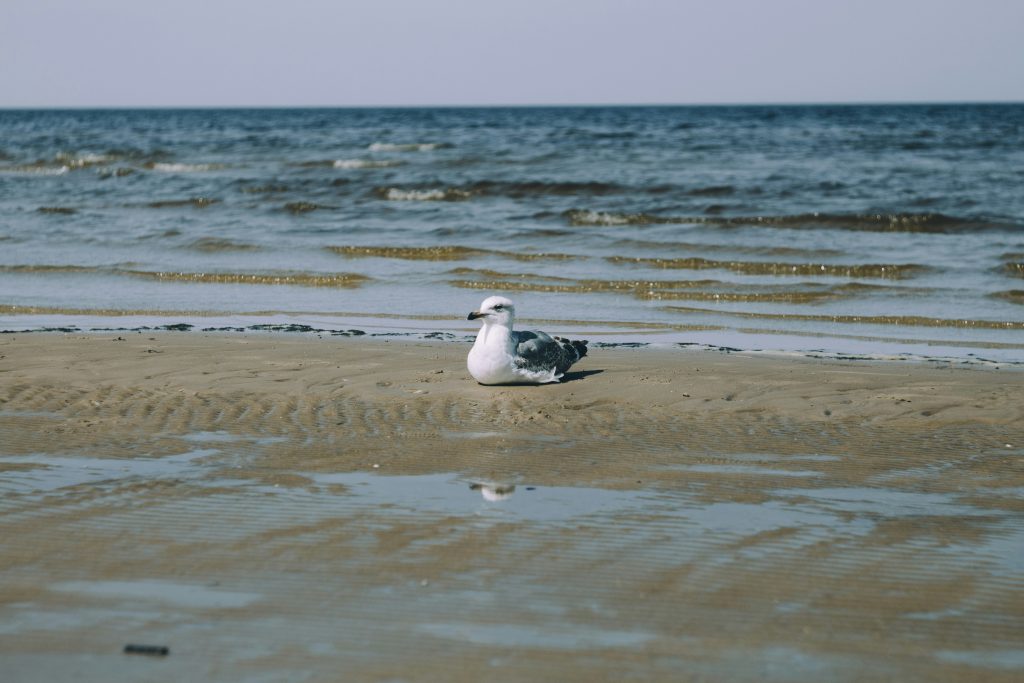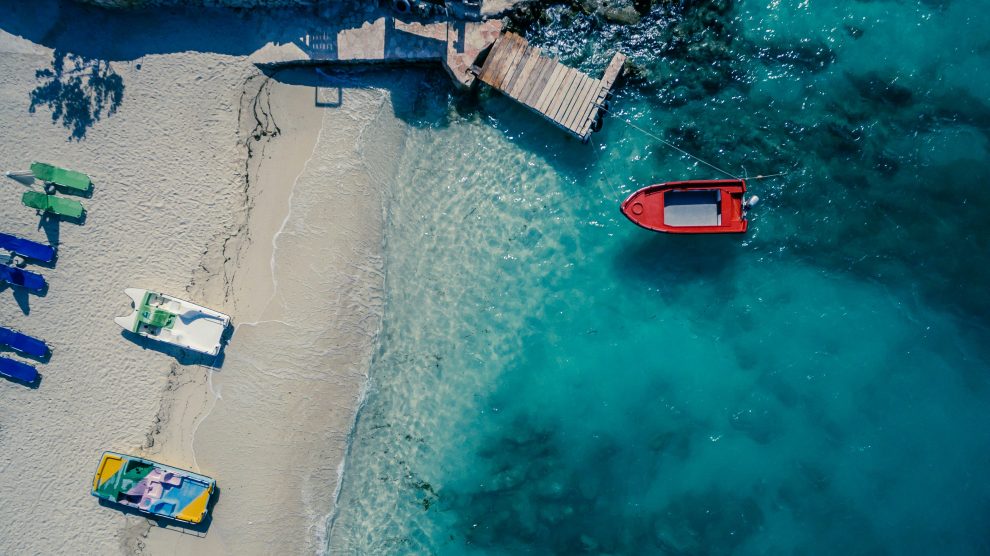Some movies, TV, books, music, travel and sporting highlights that kept the Emerging Europe team occupied when we weren’t busy working.
Films
The New Year That Never Came, directed by Bogdan Mureșanu
A clever film which takes place during a period of 24 hours beginning early in the morning on December 20, 1989. Romania’s revolution had begun four days earlier in the western city of Timișoara, but in the absence of official news, in the capital Bucharest there is only rumour.
In this setting, six people get on with their lives. A TV director has to find a way to save his New Year’s show after his leading lady defects. The solution lies with a theatre actress who can’t reach her ex-boyfriend in Timișoara.
Meanwhile the director’s son, a student, plans to flee Romania to Yugoslavia by swimming across the Danube. Elsewhere, an officer of the Securitate is struggling to move his mother from her soon-to-be-demolished house to a new apartment. The move is being carried out by a factory worker whose own son is about to land him in serious trouble.
At times both funny and genuinely terrifying (one seen in a pharmacy will trigger Romanians of a certain age) this film is not the story of Romania’s revolution. It is the story of those people whose lives were about to be changed by the revolution, and it’s all the better for it.
—
Citizen Saint, directed by Tinatin Kajrishvili
In the Georgian mining town of Chiatura (perhaps best known for its system of death-defying cable cars), a statue of a saint, believed to protect the miners, is removed for restoration and mysteriously disappears.
Simultaneously, a mute stranger arrives, leading the superstitious townspeople to believe their saint has come to life. Initially, his presence is celebrated, but as he fails to prevent misfortunes, the community’s faith wanes, and fear takes hold.
Directed by Tinatin Kajrishvili, Citizen Saint is a black-and-white allegorical drama that explores themes of faith, superstition, and human nature, highlighting how hope can both uplift and divide a community. It won the Grand Prix at the CinEast Festival in Luxembourg.
—
Silence of Reason, directed by Kumjana Novakova
A forensic video essay that takes a deep dive into the atrocities committed against women in the Foča rape camps during the war in Bosnia in the 1990s.
Constructed entirely from archival footage and survivor testimonies, the film serves as a fluid, elusive memory, rejecting conventional framing and traversing various spatial and temporal dimensions.
It examines the landmark international criminal tribunal case that first recognised rape as a form of torture and sexual enslavement as a crime against humanity.
In April, the film received the Golden Lily for Best Film at the 24th goEast Festival of Central and Eastern European Film. It’s not feel-good cinema by any means, but it’s essential cinema.
TV & Streaming
The Day of the Jackal (Peacock/Sky Showtime)
This modern take on Frederick Forsyth’s 1971 novel about a professional killer’s attempt to kill Charles de Gaulle was never going to match the sheer brilliance and precision of Fred Zinnemann’s 1973 film adaption (which was so good that even history couldn’t spoil the ending), but it’s a good, watchable romp across much of Central and Eastern Europe and the Baltics (Belarus, Budapest, Croatia, Riga, Tallinn).
This time, it’s not a French president the Jackal is after, but a web entrepreneur set on changing the world with new software that, he claims, will make the global financial system completely transparent.
While it does on multiple occasions treat viewers as idiots (trying to convince us that Budapest is Riga or Tallinn; Budapest’s old Ferihegy 1 Terminal by the way is arguably the busiest actor in the show, playing the role of at least three different airports) we can forgive it its trespasses, not least as Tallinn is chosen as the location of the announcement of the revolutionary new software.
Estonia’s reputation as the place in the region where great innovations are announced first therefore emerges intact. Much like (spoiler alert) the Jackal.
—
Detective Forst (Netflix)
We’ve had Scandi Noir, now meet Polski Noir.
Netflix’s Detective Forst delivers a gripping narrative that examines the murky world of the Polish criminal underworld, setting itself apart with its psychological depth and unflinching portrayal of moral ambiguity.
The series follows the relentless Commissioner Jakub Forst, whose obsessive drive to solve a string of brutal murders pushes him to the brink, testing not only his professional acumen but also his own humanity.
What sets Detective Forst apart from other detective shows is its focus on the complexities of the human condition, weaving personal struggles seamlessly with the broader societal issues plaguing Poland. The show also boasts some of the most breathtaking cinematography in contemporary Polish TV: Poland has arguably never looked better.
Warning: there’s a dubbed version available (as in the trailer; below). It’s genuinely terrible. Stick to the original language (Polish) and use subtitles.
Books
Getting Out: The Ukrainian Cricket Team’s Last Stand on the Front Lines of War, by Jonathan Campion
A captivating exploration of an unexpected intersection: the timeless sport of cricket and the tumultuous landscape of modern Ukraine.
Set against the backdrop of a nation struggling with conflict and uncertainty, Jonathan Campion’s marvelous weaves together bizarre stories, personal narratives, historical context, and the resilience of ordinary players from multiple countries and backgrounds who find hope and meaning in a game not usually associated with this part of the world.
Campion’s detailed reportage and empathetic storytelling shed light on cricket’s fragile foothold and its power to unite disparate communities.
Through vibrant voices and poignant moments from the first days of the war, Getting Out reveals how sport can transcend boundaries (pun intended) like almost nothing else.
—
Central Asia in World War II: The Impact and Legacy of Fighting for the Soviet Union, by Vicky Davis
Surprisingly little is known in the West about the role of Central Asia in the Second World War.
The region as a whole has been largely overlooked by historians, who have tended, if anything, to concentrate on its centuries-old position at the hub of the ancient Silk Road.
Indeed, very few of the Western tourists travelling to Central Asia to admire its architecture or ski in its mountains would be able to identify its republics as having fought alongside the Allies as part of the former Soviet Union.
This work plugs the gap in Eurocentric history by shedding light on the region’s strategic involvement in the Second World War, claiming for Central Asia its rightful place in this key period of Soviet and world history.
—
The Heart of Poland: An Odyssey Through a Country’s Football Culture, by Alex Webber
And now for something completely different: a gorgeous coffee table tome by a Warsaw legend (Webber has lived in Poland for nearly a quarter of a century, mainly working as a travel writer).
These days a serious journalist at Polish TV, he devotes his weekends to football—he will usually attend three matches each week. “My focus has always been on the lower leagues, the forgotten leagues, the rural sides. The road less travelled,” Webber says.
His book, beautifully illustrated with his own photography, is a love letter to a disappearing world—one on which iconic if often dilapidated stadia are being replaced by what he calls, “identikit lego sets”.
“[If] I didn’t write my book now, then the opportunity would have passed. The game that I love is disappearing,” Webber says. Fortunately for us, his timely book immortalises it.
Music
Radical Optimism, by Dua Lipa
Dua Lipa’s Radical Optimism had a strong global debut, hitting #1 in the UK and #2 in the US. Having French exited (to quote one of its tracks) most charts by the end of summer, the album didn’t quite capture the zeitgeist the way her sophomore album Future Nostalgia did—perhaps because it’s harder to be radically optimistic than nostalgically escapist. Timing, as they say, is everything.
Billed by Lipa herself as a ‘psychedelic Britpop’ odyssey produced by her dream collaborator Tame Impala, the album only flirts with the genre in its two lead singles before meandering into a sun-drenched collection of impeccably produced mid-tempos. It’s less an acid trip and more an Aperol spritz—best enjoyed poolside in Mykonos, Capri, or [insert your favourite Med island], where the sea breeze pairs perfectly with Lipa’s confidence.
Whilst Lipa never nodded to her Balkan origins in her music, Radical Optimism flirts with it in Falling Forever, a standout track. With its soaring beats and dramatic vocals, it’s practically begging for a Eurovision moment. Picture fire, dramatic red-and-black staging, and a triumphant Albanian flag unfurling: Eurovision 2025, your winner awaits.
While it may not redefine pop as its predecessor did, Radical Optimism serves as a reminder that not every album needs to shake the world—some are just here to soundtrack your perfect summer afternoon. And honestly, that’s optimism we can get behind.
Places
From Tirana to Tbilisi, Tallinn to Thessaloniki, more than any year in recent memory, the Emerging Europe team was on the road a lot in 2024.
We rekindled an old love affair with Vilnius—now one of the most gloriously walkable cities in Europe—and fell (as we do time and again) for the many charms of Riga—not least the opportunity it gave us for a wonderful, if chilly spring walk along the beach at Jūrmala (below).

Tbilisi was as welcoming as ever, Sofia’s restaurants (take a bow, Djannam) fed us well, and on our frequent trips to Warsaw we were amazed at how the city manages to keep getting higher and higher.
What are they going to build next?
Brașov in Romania remains that country’s finest city (by quite the distance) although its ski resort, Poiana Brașov, is now out of reach (price wise) for the likes of Emerging Europe. It’s evidence that the region’s days as a low cost destination are over. No bad thing, either.
No prizes however for guessing where we most loved visiting in 2024, for it’s the same city every year: Budapest. Majestic and imperial its cosmopolitan, multicultural vibe is at odds with Hungary’s government.
Long may it continue.
Sport
It was a good year for sportsmen and women—and teams—from Central and Eastern Europe and the Caucasus in 2024. Four stand out, however: Slovenian cyclist Tadej Pogačar, Ukrainian boxer Oleksandr Usyk, Ukrainian high jumper Yaroslava Mahuchikh, and the Georgian men’s football team.
Pogačar was all but unbeatable in 2024, winning just about every race he entered, including the Tour de France, the Giro d’Italia and the World Road Race Championships—widely viewed as being cycling’s triple crown.
He also won the Volta a Catalunya, Liège–Bastogne–Liège, the Giro di Lombardia, and Strade Bianche. Not since the days of Eddy Merckx in the early 1970s has one cyclist dominated the sport in such a way.
Usyk meanwhile became the first undisputed world heavyweight champion of the four-belt era when he defeated Tyson Fury on points in May 2024. That also made the Ukrainian the first undisputed heavyweight king since British fighter Lennox Lewis in 1999. Usyk beat Fury again in December.
Mahuchikh also had an extraordinary 2024, breaking a world record that had stood since 1987 and winning Olympic gold. She was later in the year named female athlete of 2024 by World Athletics.
Finally, Georgia’s national football team may not have made it past the second round at the European Championships in the summer, but their style of play—gung ho in an era of safety-first soccer—won them many friends and entertained us all. And in Giorgi Mamardashvili—set to join Liverpool next summer—they could also boast the tournament’s best goalkeeper.
At Emerging Europe, we use an integrated approach centred around market intelligence to help organisations understand trends and strategically position themselves for success.
Learn how our solutions can help you thrive in the region:
Company and Services Overview | Strategic Advantage.

